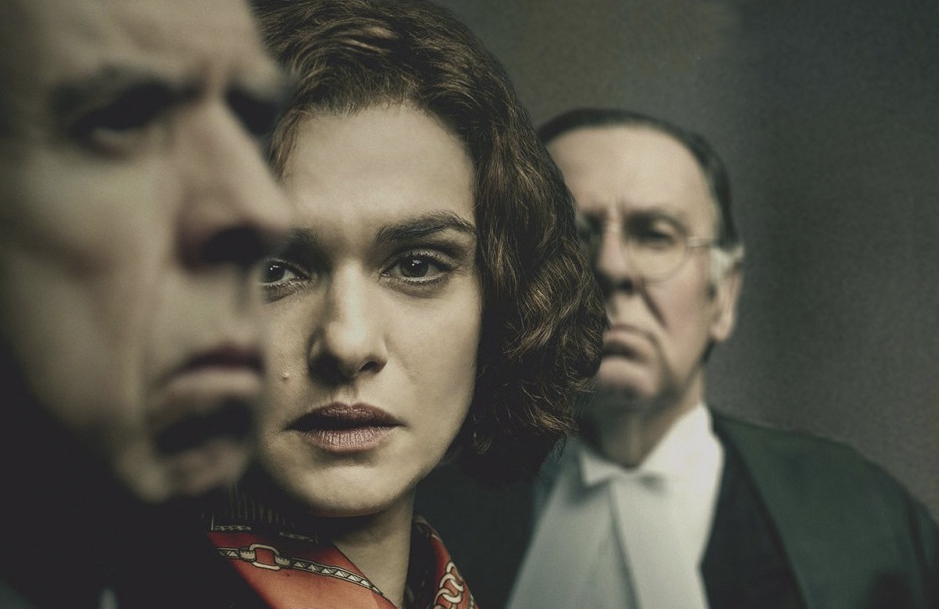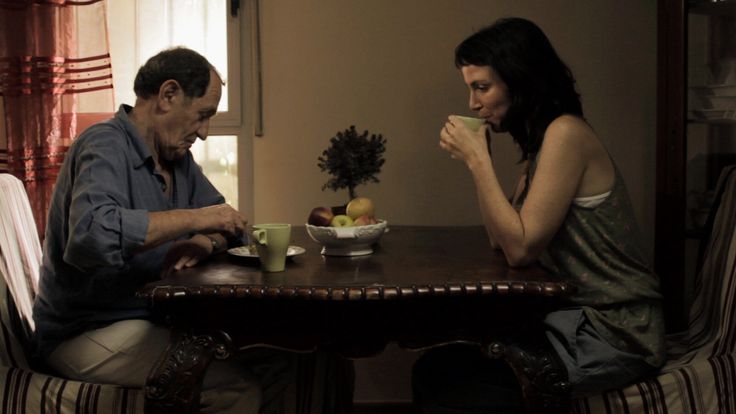Israel is rightly famed for its thriving film industry for directors, actors and other creatives who produce films that provide snapshots of life in Israel. From delicious quirky comedies to tense dramas: they are not afraid to engage with…
JR OutLoud: Bulgarian-born Dora Reisser tells her life story, from child refugee to prima ballerina and beyond
It’s Dora Reisser’s ability to reinvent herself – from child refugee to prima ballerina, actor, screen star and fashion designer – and in such nail-biting circumstances, that makes her memoir, Dora’s Story, so gripping. Judi Herman visited Reisser at her remarkable London home (it used to be a railway station) to hear more of the stories behind her book, which begins with the little-known history of how Bulgaria’s Jews survived the Holocaust; and about her life in the UK and Israel, including an eye-opening account of how she started her Reisser fashion house – just one of the many new stories Reisser has that could fill a sequel.
Dora's Story by Dora Reisser is out on Troubador. £9.99. www.troubador.co.uk
Click here to listen to more from JR OutLoud.
Review: Denial ★★★★ - Fine performances prove attack is the best form of defence to demolish Holocaust denial
 Hitler apologist David Irving would have loved to have his day – or days – in court face to face with Deborah Lipstadt, the historian he sued for libel for labelling him “one of the most dangerous spokesmen of Holocaust denial”. It is more a strength than a weakness of the film charting Irving’s high-profile defeat by Lipstadt's team of lawyers that Lipstadt herself maintains a dignified ‘silence in court’.
Hitler apologist David Irving would have loved to have his day – or days – in court face to face with Deborah Lipstadt, the historian he sued for libel for labelling him “one of the most dangerous spokesmen of Holocaust denial”. It is more a strength than a weakness of the film charting Irving’s high-profile defeat by Lipstadt's team of lawyers that Lipstadt herself maintains a dignified ‘silence in court’.
Mick Jackson’s film (script David Edgar) is elegantly structured, giving a taste early on of what might happen if Rachel Weisz’s passionate, intelligent Lipstadt does not keep her own counsel. Timothy Spall’s Irving is chilling from the first glimpse of his eyes, narrowed balefully with Lipstadt in his sights, preparing to hijack her keynote lecture at UCLA by interrupting, shouting her down, and publicising his latest pro-Hitler book.
Once Irving has sued her, in the British legal system where she must prove her innocence, the action moves to London, and the imposing Inns of Court. The exteriors are shot on location. The wood-panelled interiors, crammed with clubbable members of the huge defence team meeting over wine and cheese, conjure up fusty, yet reassuringly British legal traditions. It’s heartening to see the older, experienced legal eagles bringing on the bright youngsters who research the case.
Less heartening is the reaction of British Jewry’s great and good. They advise Lipstadt to fundraise and settle out of court rather than risk defeat and affording Irving the oxygen of publicity. But really the spotlight here is on the twin stars of the legal firmament, Jewish celebrity solicitor Anthony Julius, and non-Jewish, avowedly philosemitic chain-smoking barrister Richard Rampton QC. Andrew Scott (Julius) and Tom Wilkinson (Rampton) give extraordinarily detailed portraits of a pair with incisive brilliant minds used to working seamlessly together.
There’s no such meeting of minds with the spiky Lipstadt. The Kafkaesque legalities make her frustrated and suspicious. Even a trip to Auschwitz does little to endear Rampton to her (she does not see what we do – that he’s visibly moved by his painstaking onsite research) and only when they share a nightcap in her London hotel does she thaw. Thus they establish the trust that enables her in turn to reassure the anxious Holocaust survivors whom Rampton and Julius know would be easy meat for Irving if called as witnesses. During our interview with Rampton in the January 2017 issue of JR, he confided that this moment in the hotel didn’t happen, though he appreciates the poetic licence.
So despite his displays of virulently antisemitic histrionics conducting his own case in gripping court scenes, Irving simply doesn’t get the chance to tempt Lipstadt into the ring and the rest, as they say, is (genuine) history.
By Judi Herman
Denial will be available on DVD from Monday 5 June.
Read Judi's interview with Richard Rampton QC in the January 2017 issue of Jewish Renaissance, or find it on this site by following the link on the home page.
Click here to read more film reviews
JR OutLoud: Dana Ivgy chats to JR's arts editor Judi Herman about her role in Next to Her
Israeli actress Dana Ivgy chats to JR's arts editor Judi Herman about her role in Asaf Korman's drama Next to Her. This powerful, challenging film – with a script by Korman's wife Liron Ben-Shlush – explores the symbiotic relationship between Chelli (played by Ben-Shlush) and her mentally-challenged sister Gabby (Ivgy), for whom she is the sole carer. One day she is forced to hand Gabby over to a daycare centre part-time, which is when a relationship of another kind develops with Zohar (Yaakov Zada Daniel) the new gym teacher at the school where she works. Ben-Shlush based this story on her own experience of having a mentally disabled sister and worked closely with friend and co-star Dana Ivgy on her role.
Next to Her can be watched on BFI Player for £6 or at the following screenings:
Friday 25 - Wednesday 30 March, times vary, £7.50, at MAC Birmingham, B12 9QH; 0121 446 3232. https://macbirmingham.co.uk
Sunday 20 March, 8pm, £8.50, at Glasgow Film Theatre, G3 6RB; 0141 332 6535. www.glasgowfilm.org/theatre
JR OutLoud: Hear filmmaker Gur Bentwich chat to Judi Herman about an extraordinary Jewish dynasty
From humble origins in Whitechapel, the eccentric and ambitious 19th-century lawyer Herbert Bentwich set out to establish an aristocratic Jewish dynasty, having a profound impact on British Jewish life and on the new state of Israel. In this wry and witty documentary, The Bentwich Syndrome, brilliantly enhanced by Monty Pythonesque animation, Bentwich’s great-grandson Gur sets out to discover the truth about this much-maligned and enigmatic family. Along the way, from Herbert’s daughter, who did not just become Christian but also a nun – and a lesbian – to the 20th-century scion, ‘Quick Quick’ Norman Bentwich, a whirlwind who advised Hailie Selassie of Ethiopia, helped set up the Kindertransport in Europe and, became attorney general in the British Mandate in Palestine, the filmmaker and his wife and partner Maya Kenig uncover a remarkable story, funny and sometimes tragic, of fervent Zionists, inspired artists, and outrageously determined rebels.
See The Bentwich Syndrome with Gur Bentwich in conversation at the following places:
Monday 16 November, 4pm, JW3, 341-351 Finchley Rd, NW3 6ET; 020 7433 8988. www.jw3.org.uk Wednesday 18 November, 6.30pm, Odeon Swiss Cottage, 96 Finchley Rd, NW3 5EL; 0333 006 7777. www.odeon.co.uk Thursday 19 November, 7.30pm, Seven Arts Leeds, 31A Harrogate Rd, LS7 3PD; 0113 262 6777. www.sevenleeds.co.uk
Small and perfectly proportioned: TAU Night at the Movies features the next big thing in Israeli talent
Every year I’m impressed by the quality of short student films presented by the Tel Aviv University Trust. It’s delightful to see such tight storytelling in as little as 12 minutes. That’s the length of Kapunka (trailer above), the film that opened this year’s mini festival, and it set the benchmark high.
The tale of crafty Shmulik – who sees his way round the rabbinate law of shmita that decrees land be left fallow every seven years – is also timely for this is that seventh year. Shmulik’s solution to sell his land temporarily to Changrong, his senior Thai worker, with the idea of buying it back when the year is up, inevitably goes spectacularly wrong. And I do mean spectacularly! To reveal more would be a shame, but director Tal Greenberg’s abrasively funny film may well remain a unique opportunity to marvel at a Thai temple sprouting in an Israeli field like Jack’s beanstalk. Greenberg’s cinematography is gorgeous, colouring a vivid landscape, the Spaghetti Western score is spot on for a comic confrontation on the land and the actors are wonderfully matched. It’s great to see the significant community of Thai workers in Israel given space too. Greenberg is definitely one to watch.
The spotlight turns on a rather larger minority community in Leeor Kaufman’s Papa. At first sight this is a story of schoolboys bullying 11-year-old Stas, who is a recent immigrant from Russia. His violinist father is reduced to busking and Stas, desperate for acceptance into a gang of Israeli boys, is reduced to a less than filial act. Kaufman says the film is first and foremost about fatherhood, putting your children first. Poignantly Sioma Perl, the TAU theatre department carpenter who plays Papa, was a theatre director in Russia before he emigrated to Israel. No wonder his performance has such depth. Kaufman gets terrific performances out of his young actors too and his film is both poignant and unsettling.
Even more unsettling is HomeMade, Lior Sagi’s story of a kibbutz mother trying to clear her son’s name when he is arrested for molesting a kibbutz child. Sagi cleverly puts the mother in charge of the nursery of even younger children, so she first appears confidently regaling them with bright, happy children’s stories. Her body language crumples as soon as she is confronted by the adult world in which she herself has become a news story. The cruelty of the young female TV journalist by whom she has agreed to be interviewed and the eventual outcome of the film are discomfiting and Sagi is not afraid to tackle this difficult subject.
Maayan Cohen is not afraid to be explicit in his shockingly funny comedy Zazaland, about a Georgian family trying to arrange a marriage for their gay son. The contrast between the prim, po-faced bride and her family and her prospective bridegroom’s louche and rather gorgeous lover, gleefully hiding naked in his bedroom, make for squeals of audience laughter and Cohen orchestrates the increasingly farcical situation he’s created with aplomb. His film is part of a project to take inspiration from a classic Israeli film to make a new short. He’s done a great job of making a pithy, daring little comedy inspired by Dover Koshashvili's full-length drama Late Marriage and his choice of a Georgian family is a subtle extra homage to Kosashvili's Georgian heritage.
Finally, the most unashamedly charming of the five films, Lee Nechushtan’s Dinner (pictured above) proves that it’s never too late to date. Gadi, a 76-year-old local deliveryman, is looking forward to a dinner date he’s arranged via an agency, but he must first get through his busy day and one delivery threatens to scupper his evening. Veteran film and theatre actor Gedalia Besser charms as feisty Gadi and Nechushtan sets up the situation beautifully. She introduces her hero in his cosy cluttered apartment listening to an old favourite and organising his date on a cream-coloured old-fashioned Bakelite telephone, and then expertly steers her story through the encounters he has with a succession of regular customers.
On this showing the future of the Israeli film industry is safe in the hands of its graduating filmmakers and I’d be surprised if we don’t hear these five names again.
By Judi Herman



